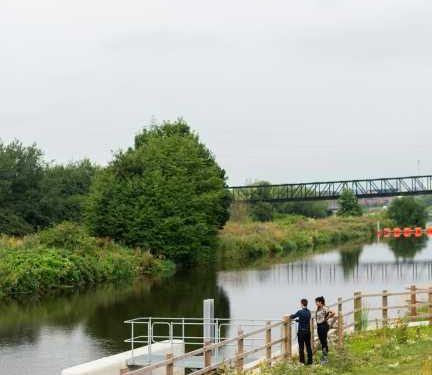Engineering plays a crucial role in shaping the infrastructure, industry, and overall development of a country. In developing countries, engineers face a unique set of challenges and opportunities as they work towards improving the quality of life for their citizens. From limited resources to lack of access to education, engineers in developing countries must navigate through various obstacles to create sustainable solutions for their communities.
One of the biggest challenges that engineers in developing countries face is the lack of adequate resources. This includes not only limited funding for projects but also a scarcity of materials and technology needed to implement innovative solutions. Without access to modern equipment and tools, engineers are often forced to come up with creative and cost-effective alternatives to complete their projects. This can lead to delays, subpar results, and overall inefficiency in the engineering process.
Additionally, the lack of skilled labor poses a significant challenge for engineers in developing countries. Many countries struggle to provide quality education and training for their citizens, which results in a shortage of qualified engineers and technicians. This shortage can hinder the progress of projects and limit the potential for development in these countries. Engineers must work with the resources they have and at times, train and educate local workers to ensure the successful completion of their projects.
Another obstacle that engineers in developing countries face is the lack of proper infrastructure and regulatory frameworks. Without clear guidelines and support from the government, engineers often encounter difficulties in obtaining necessary permits and approvals for their projects. This can lead to delays and increased costs, ultimately hindering the progress of development initiatives. Engineers must navigate through these challenges by building strong relationships with local authorities and stakeholders to ensure the smooth execution of their projects.
Despite these challenges, engineers in developing countries also have ample opportunities to make a significant impact on their communities. By leveraging their skills and expertise, engineers can create sustainable solutions that address the unique needs of their countries. Whether it be designing renewable energy systems, improving access to clean water, or enhancing transportation networks, engineers have the opportunity to contribute to the overall development and well-being of their societies.
One of the key opportunities for engineers in developing countries is the chance to innovate and adapt to new technologies. With the rapid advancement of technology, engineers can leverage tools such as artificial intelligence, automation, and data analytics to enhance their projects and improve efficiency. By embracing these technological advancements, engineers can overcome many of the challenges they face and create innovative solutions that drive progress in their communities.
Furthermore, engineers in developing countries have the opportunity to work on projects that have a direct impact on the lives of their citizens. Whether it be constructing critical infrastructure, designing sustainable buildings, or implementing renewable energy systems, engineers have the chance to improve the quality of life for millions of people. This sense of purpose and fulfillment motivates engineers to overcome obstacles and strive for excellence in their work.
Additionally, engineers in developing countries have the opportunity to collaborate with international partners and organizations to access additional resources and expertise. By forming partnerships with global engineering firms, NGOs, and governmental organizations, engineers can tap into a wealth of knowledge and experience that can help them overcome challenges and achieve success in their projects. These collaborations also provide opportunities for engineers to exchange ideas, learn new techniques, and expand their professional networks.
Despite the challenges and opportunities that engineers in developing countries face, it is clear that their work is essential for the sustainable development of their nations. By overcoming obstacles, leveraging resources, and embracing innovation, engineers can create lasting change that improves the lives of their communities. As the global engineering community continues to grow and evolve, engineers in developing countries must continue to adapt and innovate to meet the ever-changing needs of their societies.
In conclusion, the challenges and opportunities of engineering in developing countries highlight the importance of the profession in driving progress and creating sustainable solutions for communities around the world. Despite the obstacles that engineers face, their work is vital for the improvement of infrastructure, industry, and overall quality of life in developing countries. By embracing innovation, collaboration, and a sense of purpose, engineers in developing countries can overcome challenges and seize opportunities to make a positive impact on their societies.














